Observational skills Normal Our Planet and Environment Worksheets for Ages 3-6
6 filtered results
-
From - To
Unlock the world of discovery for young minds with our "Observational Skills - Our Planet and Environment Worksheets" designed for ages 3-6. These engaging activities help children develop critical observational skills while learning about the fascinating elements of our planet and environment. With fun, age-appropriate exercises, kids will explore nature, weather, animals, and habitats, fostering a love for science and the world around them. Nurture your child’s curiosity and enhance their attention to detail using worksheets that turn learning into an exciting adventure. Perfect for both classroom and home learning, start your child’s journey of exploration today!
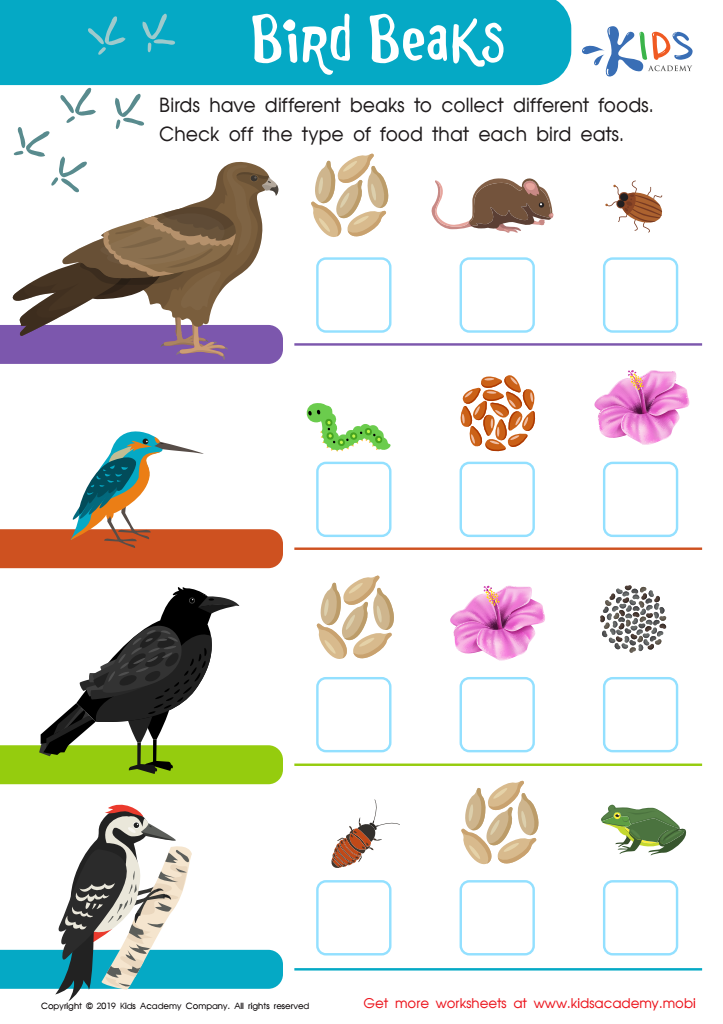

Bird Beaks Worksheet
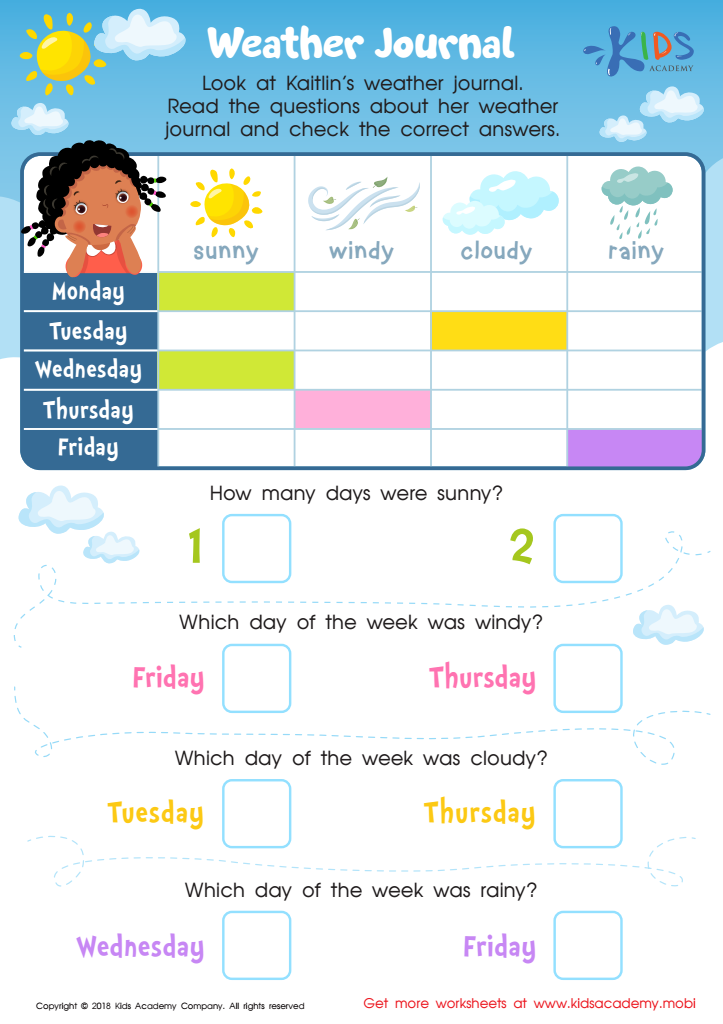

Weather Journal Worksheet
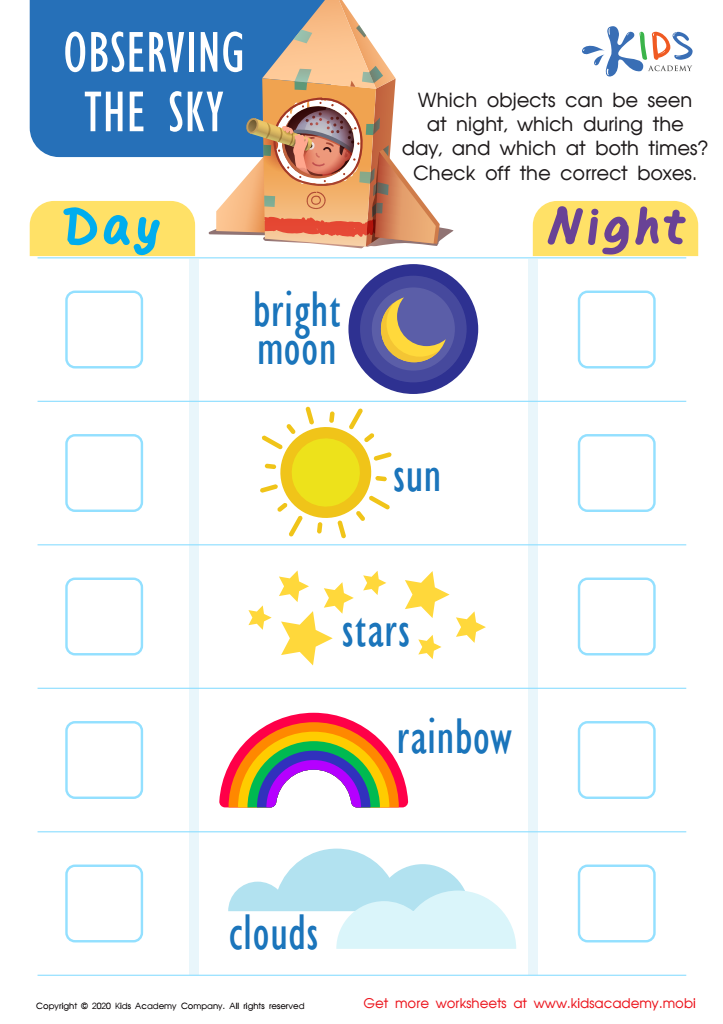

Observing the Sky Worksheet
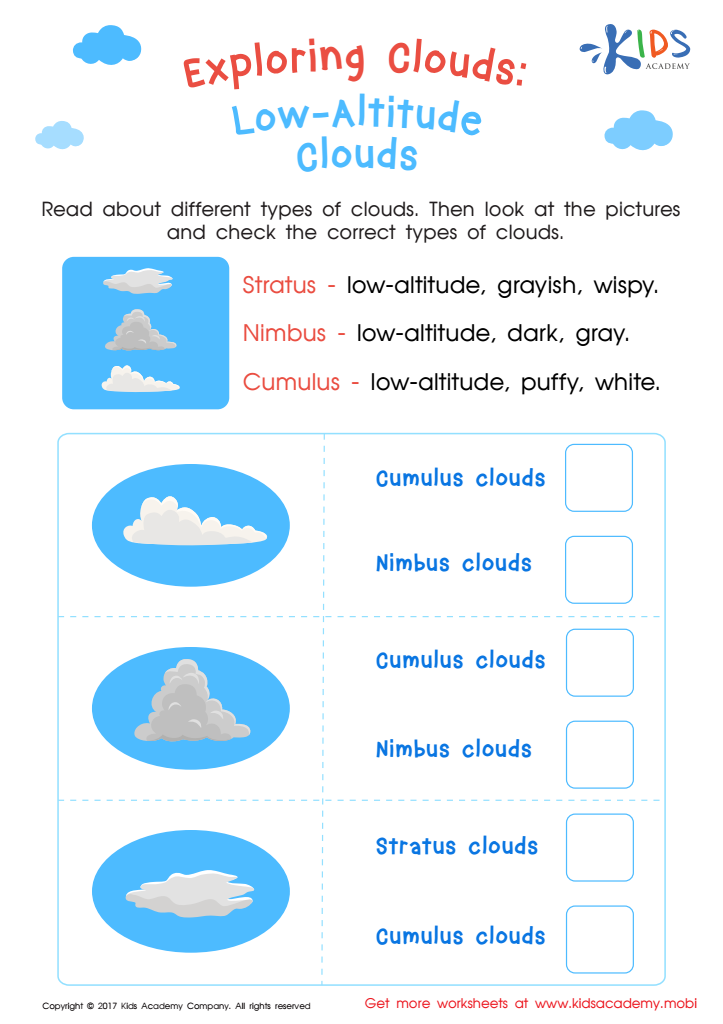

Exploring Clouds: Low Altitude Clouds Printable
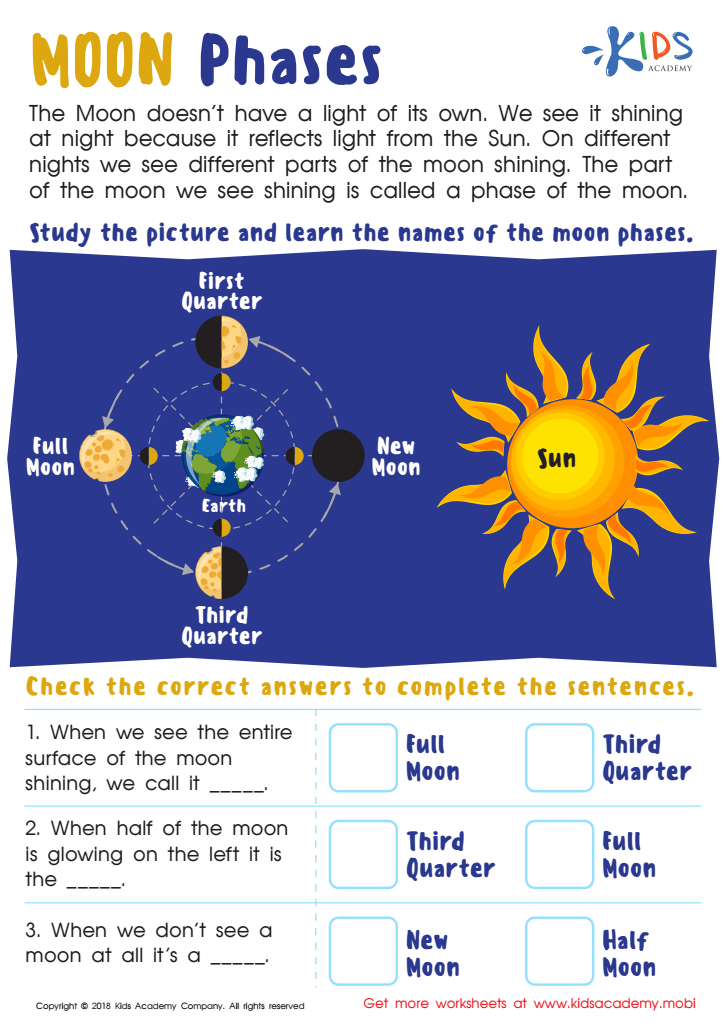

Moon Phases Worksheet


Animals and Plants: Assessment 1 Worksheet
Observational skills in young children are fundamental as they form the base of their cognitive development and understanding of the world around them. At ages 3-6, children are naturally curious and eager to explore, making this an optimal period to nurture these skills. By honing observational skills, children improve their ability to notice finer details, a practice that sharpens their mind and enhances their ability to think critically and solve problems.
Moreover, fostering a child's awareness of our planet and environment at an early age has profound long-term benefits. Understanding simple concepts about nature, such as plant growth, weather patterns, and animal behaviors, not only stimulates children's interest in science and the environment but also builds a foundational respect for nature.
Encouraging this connection with nature helps instill a sense of responsibility and empathy towards environmental preservation. Kids begin learning the importance of trees, the beauty of biodiversity, and the critical role of the ecosystem, which primes them to be better stewards of the Earth as they grow older.
Ultimately, caring about these observational skills and environmental awareness equips children with the tools to become thoughtful, informed, and active citizens capable of contributing positively to their communities and the larger world.
 Assign to My Students
Assign to My Students














